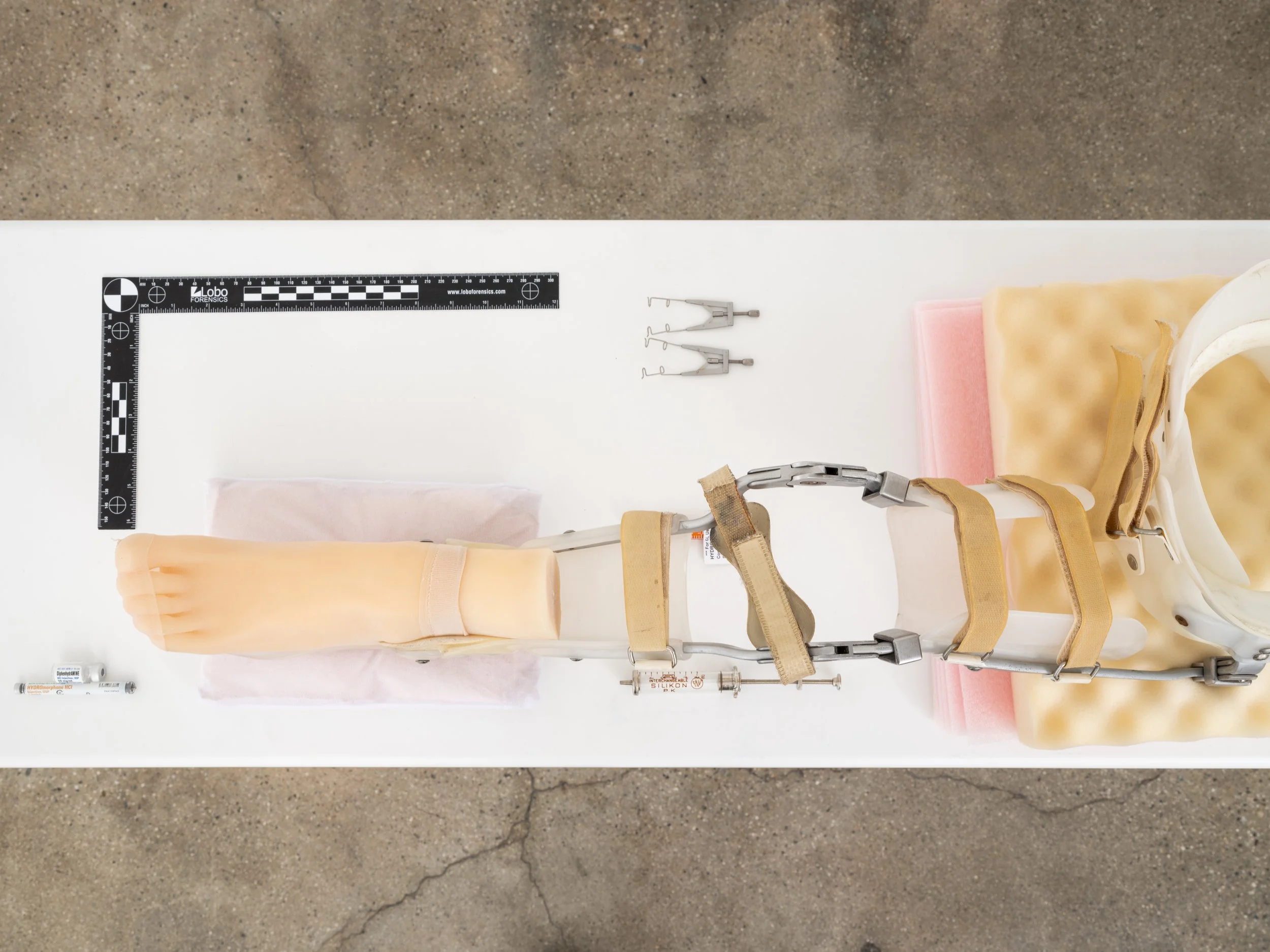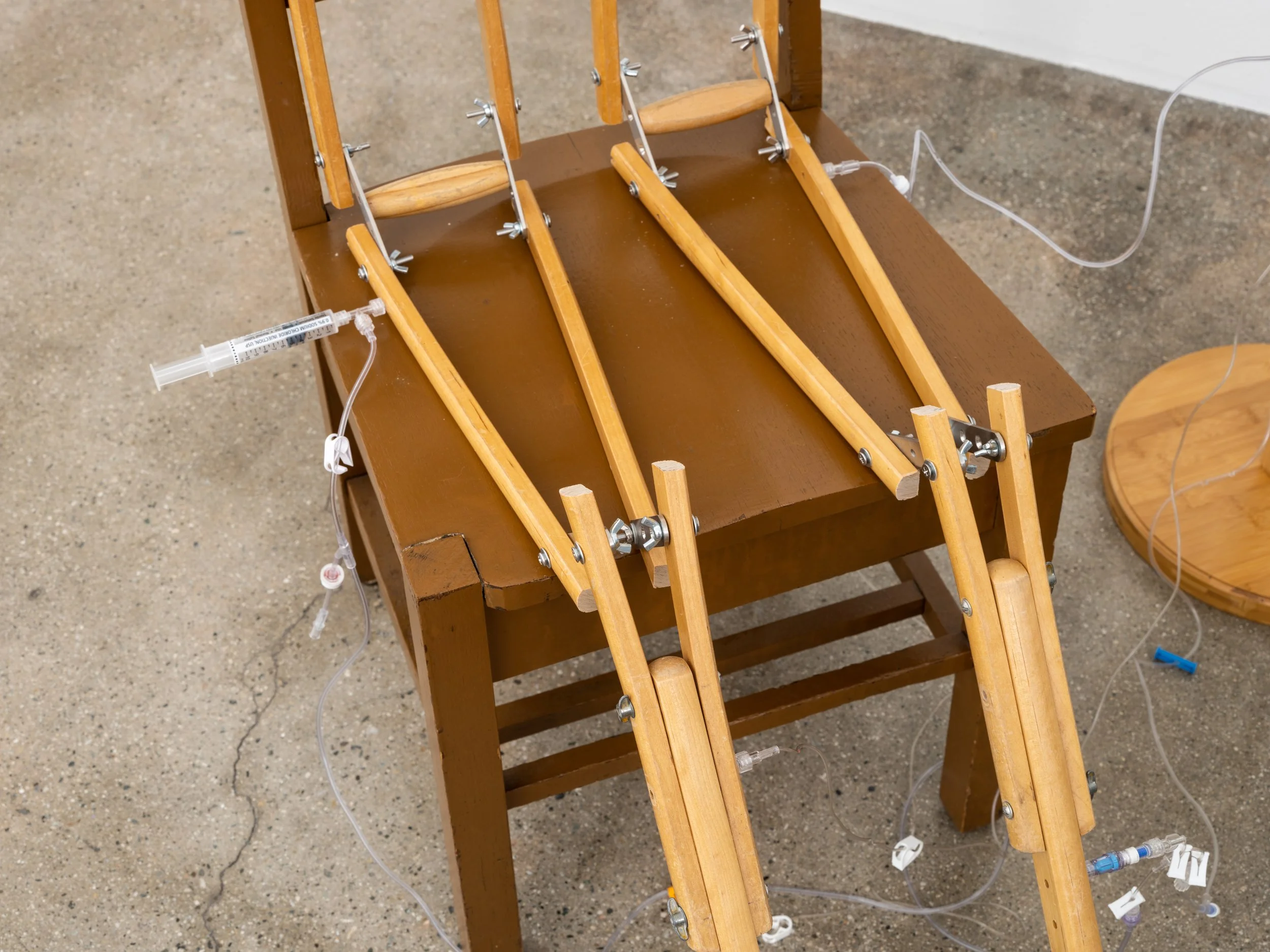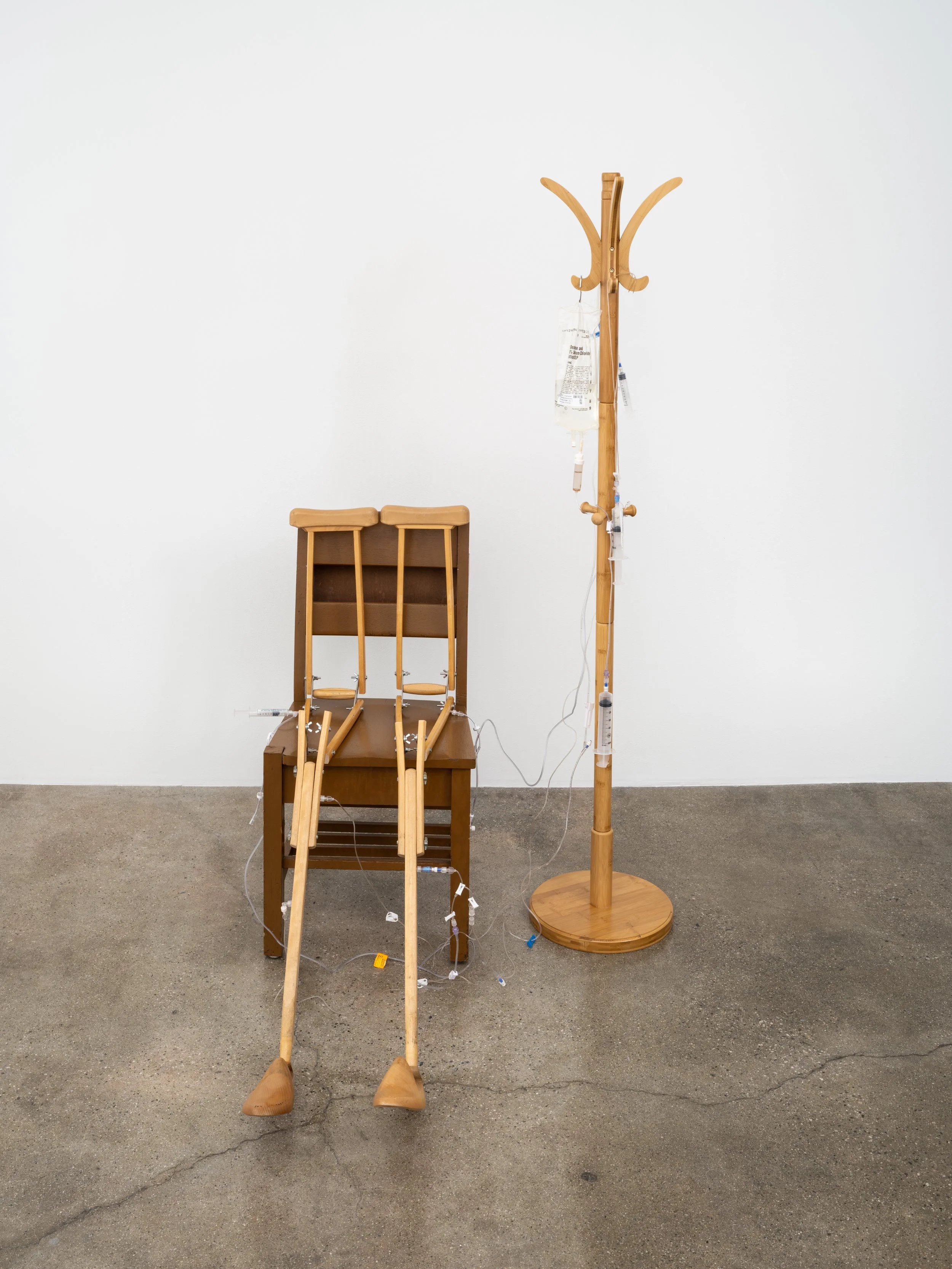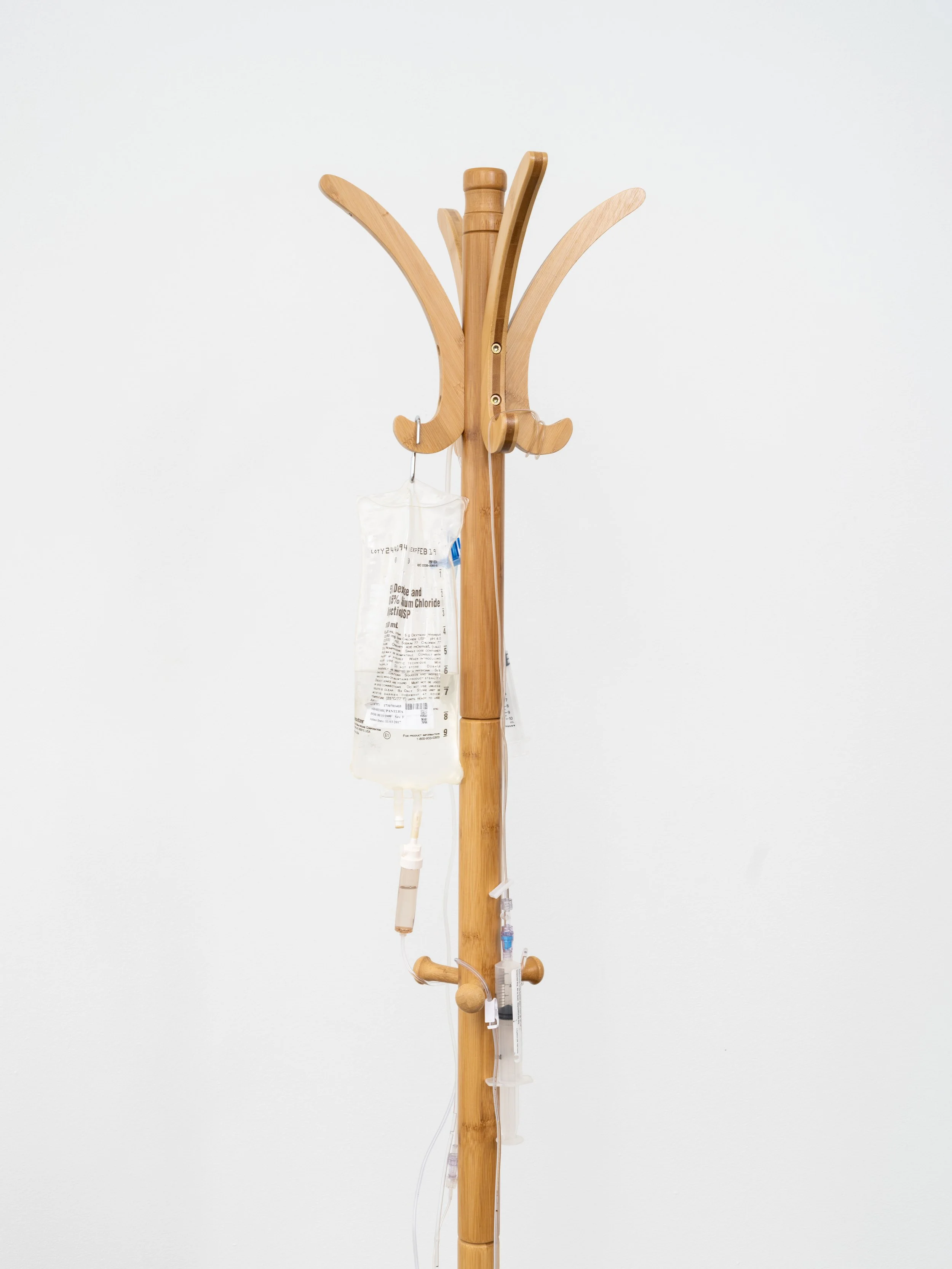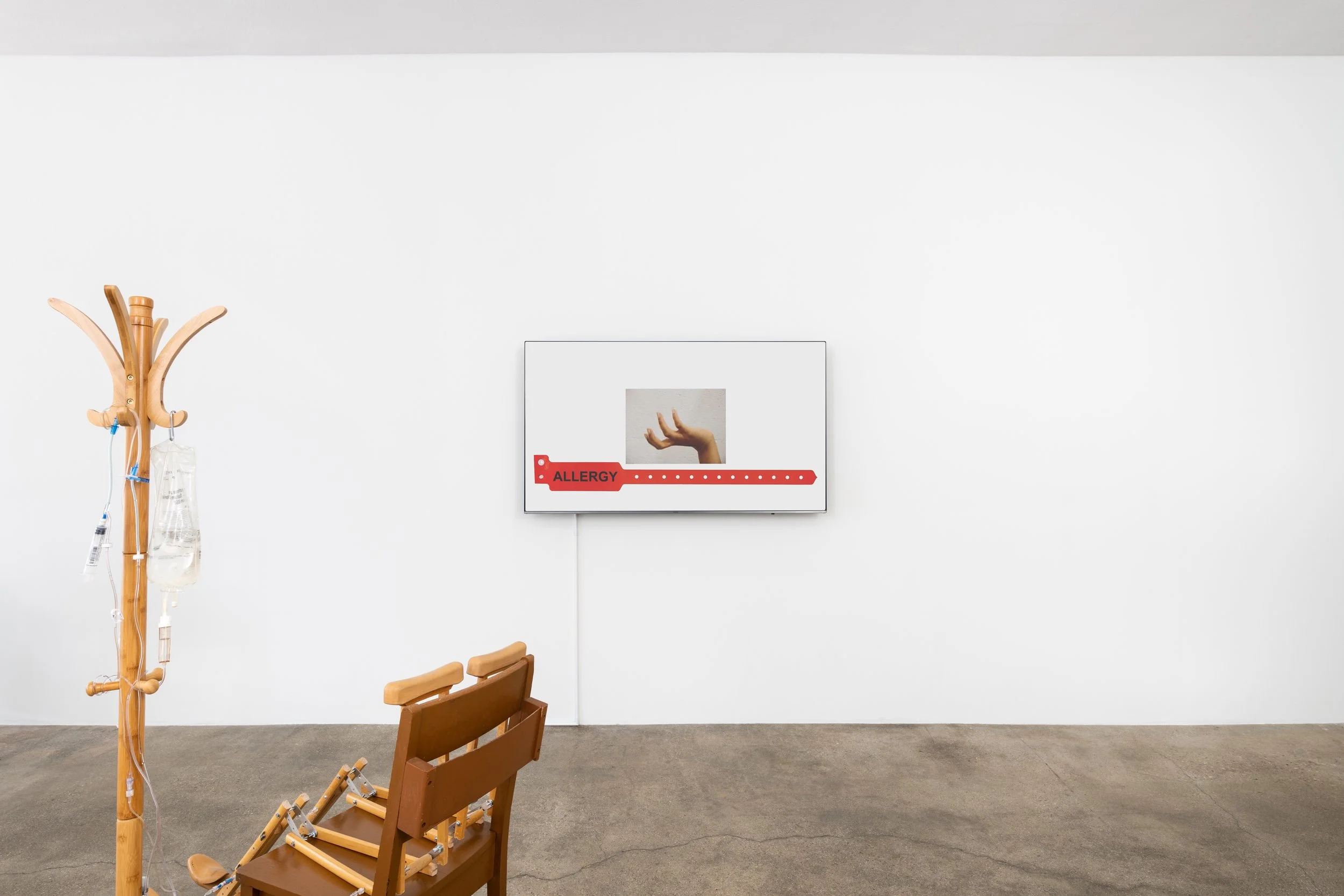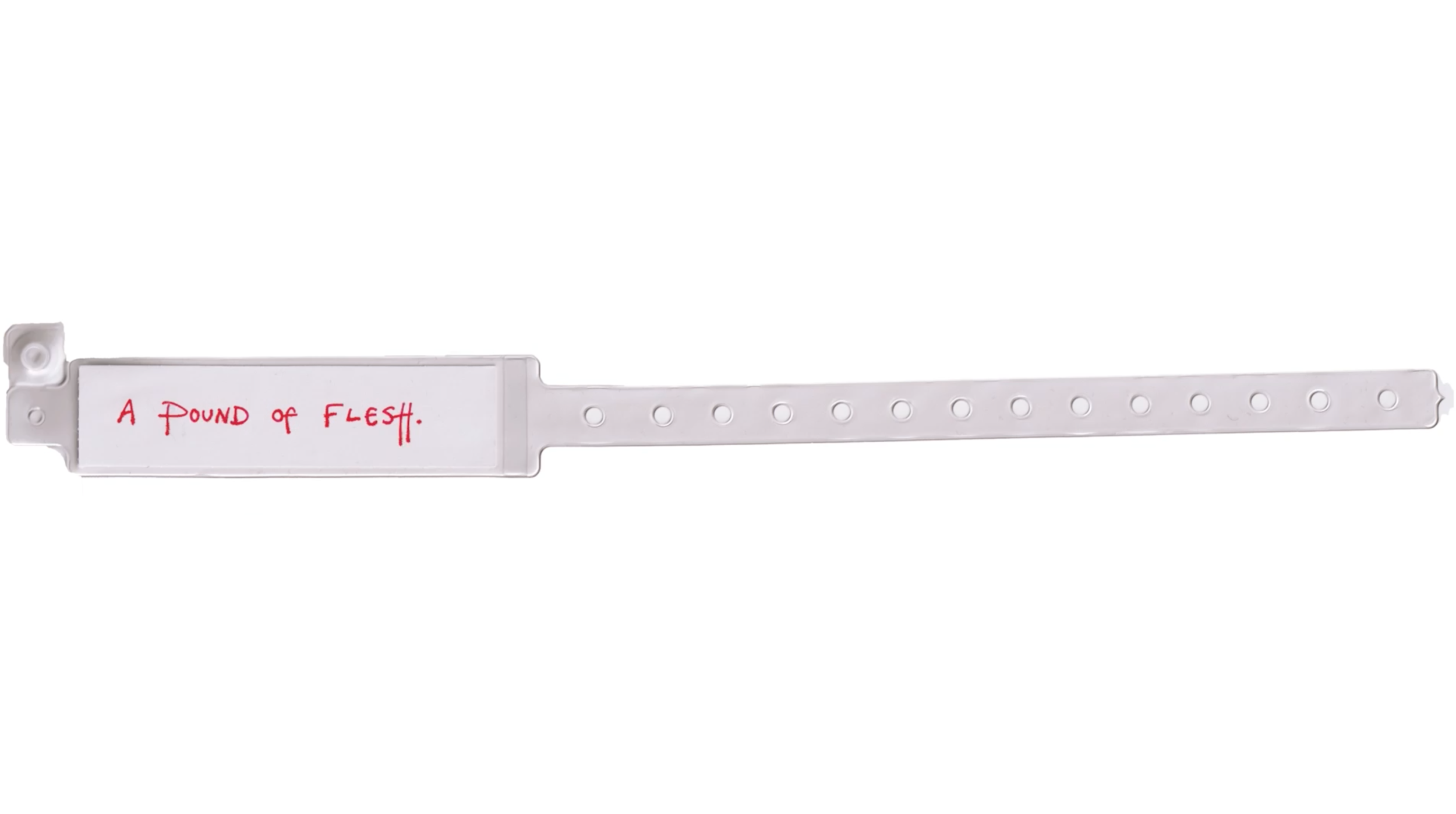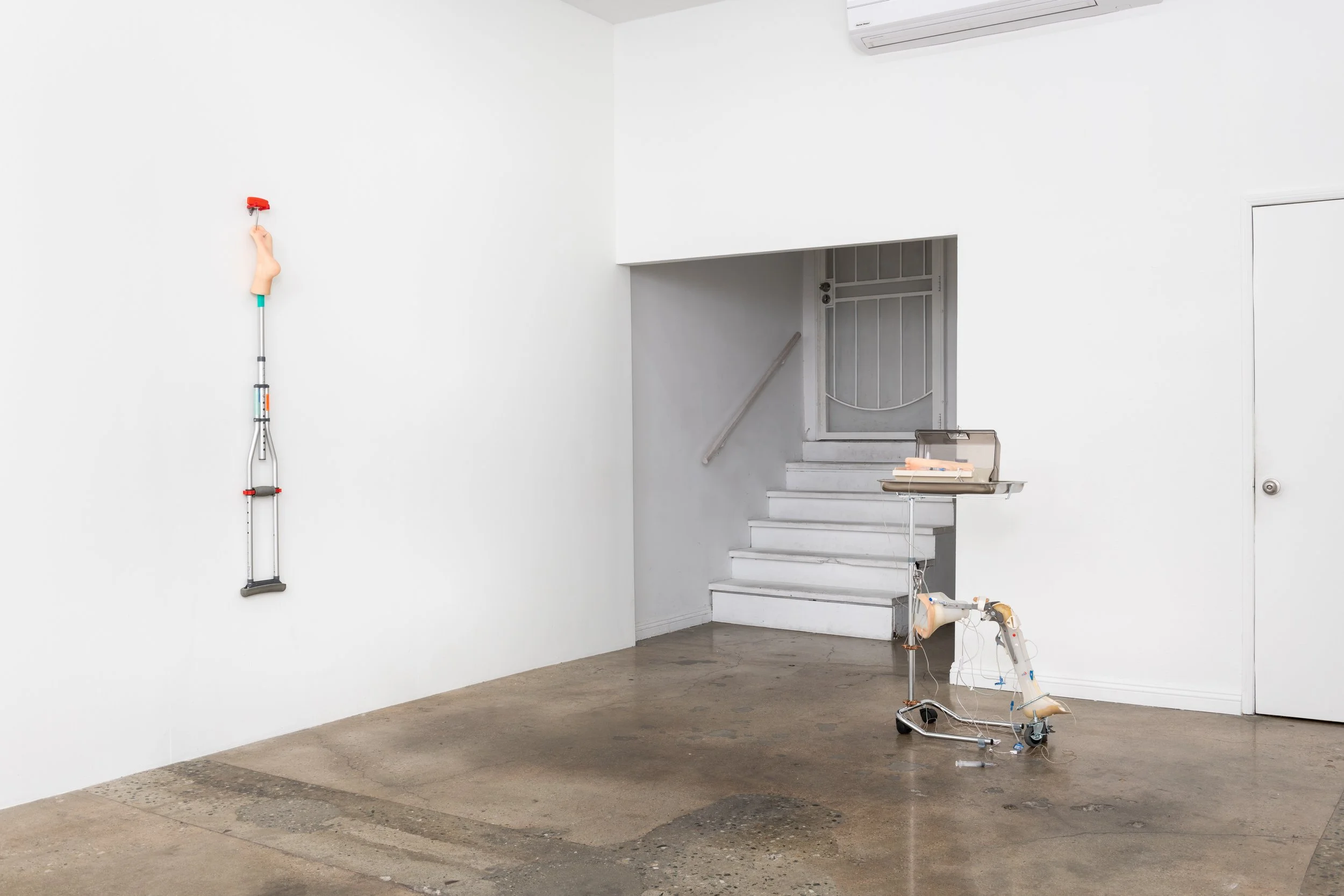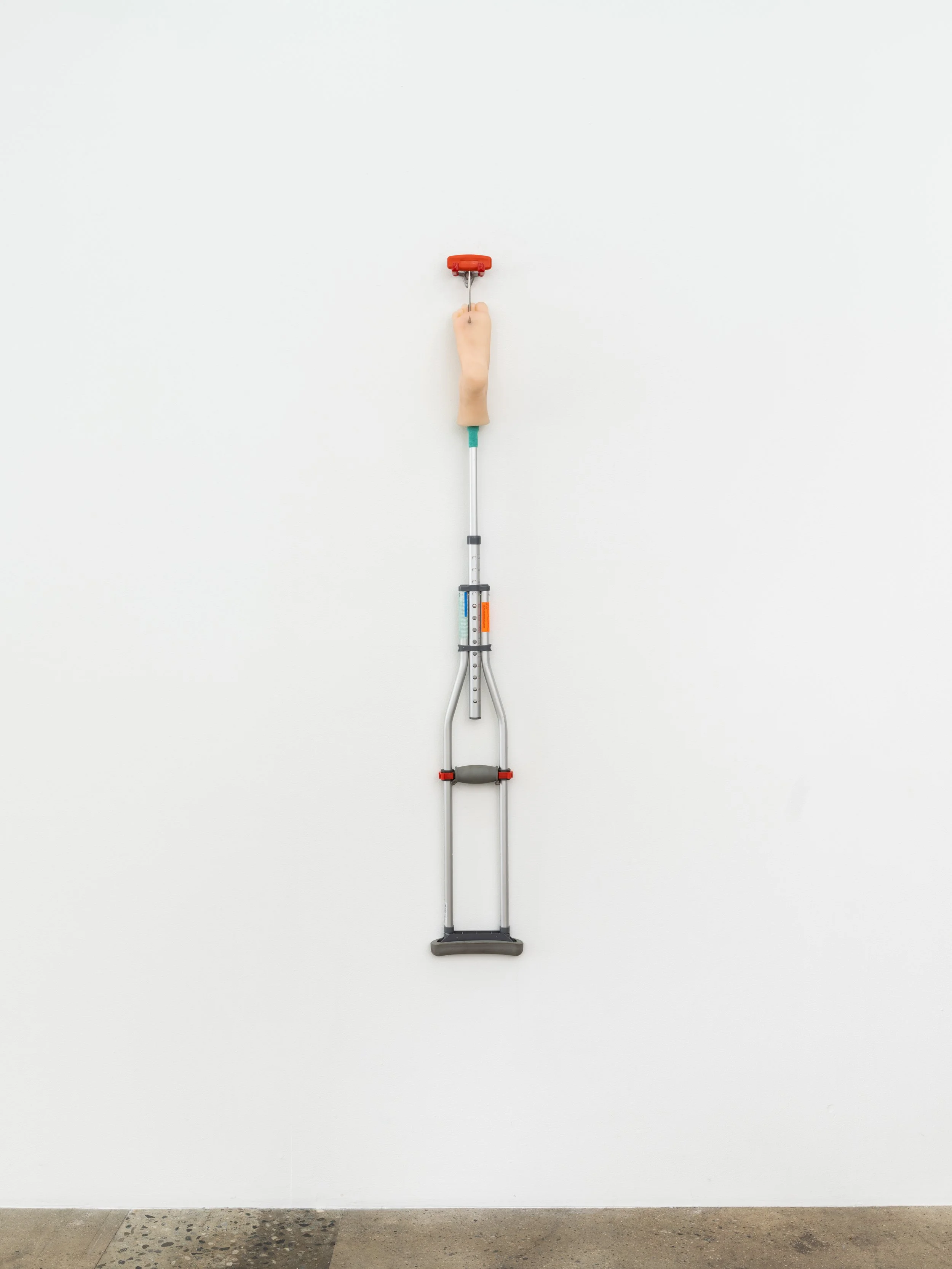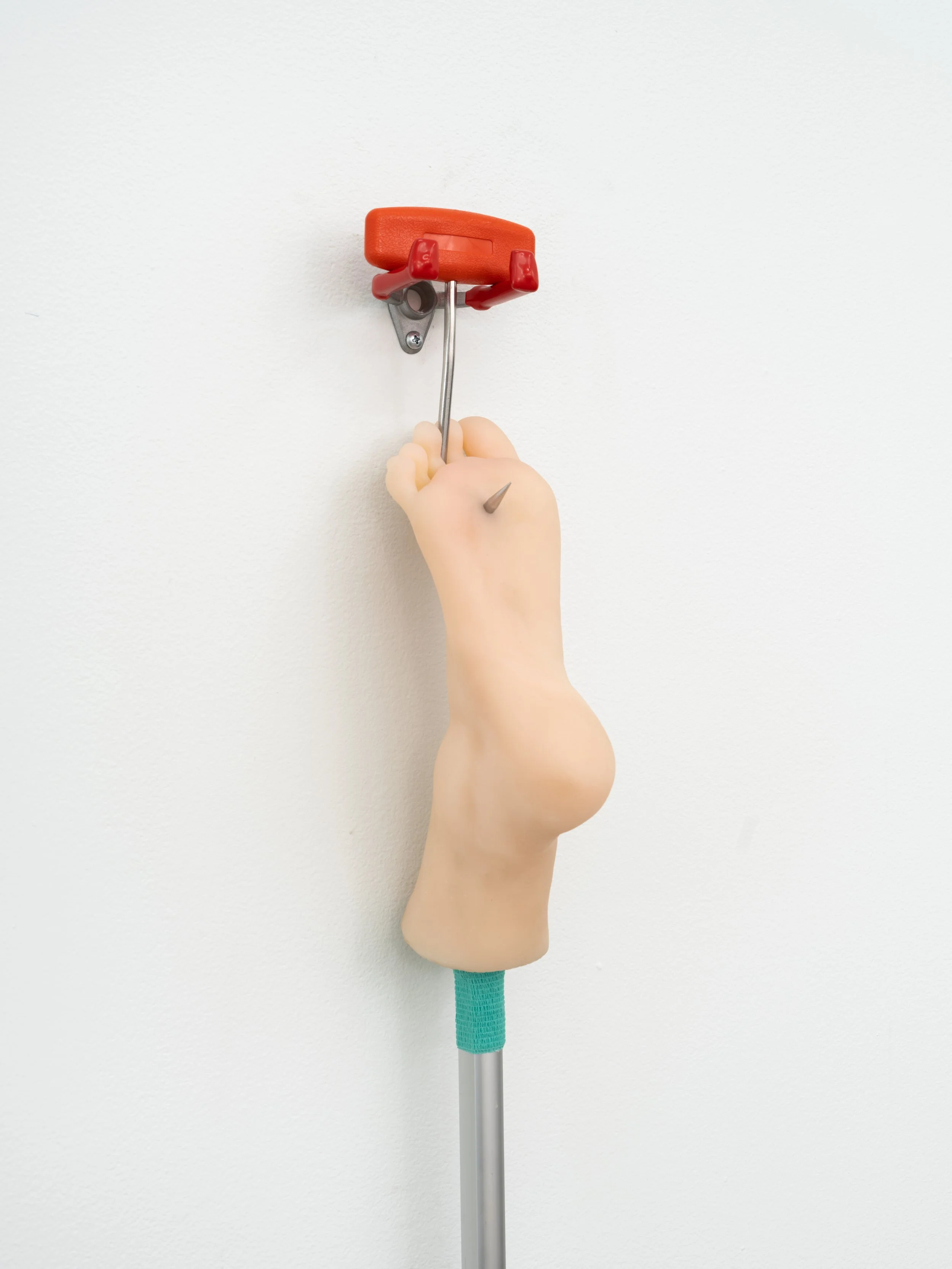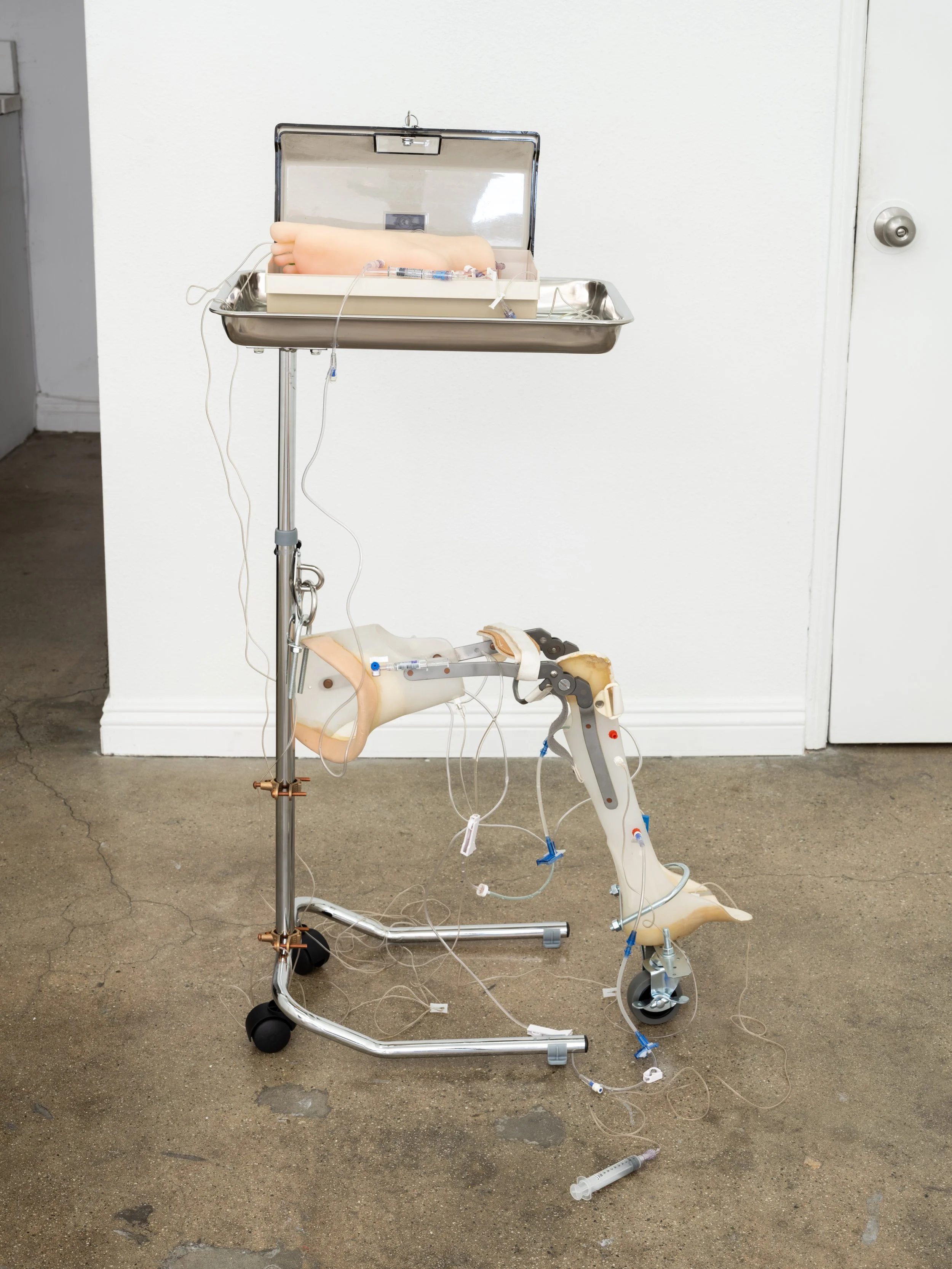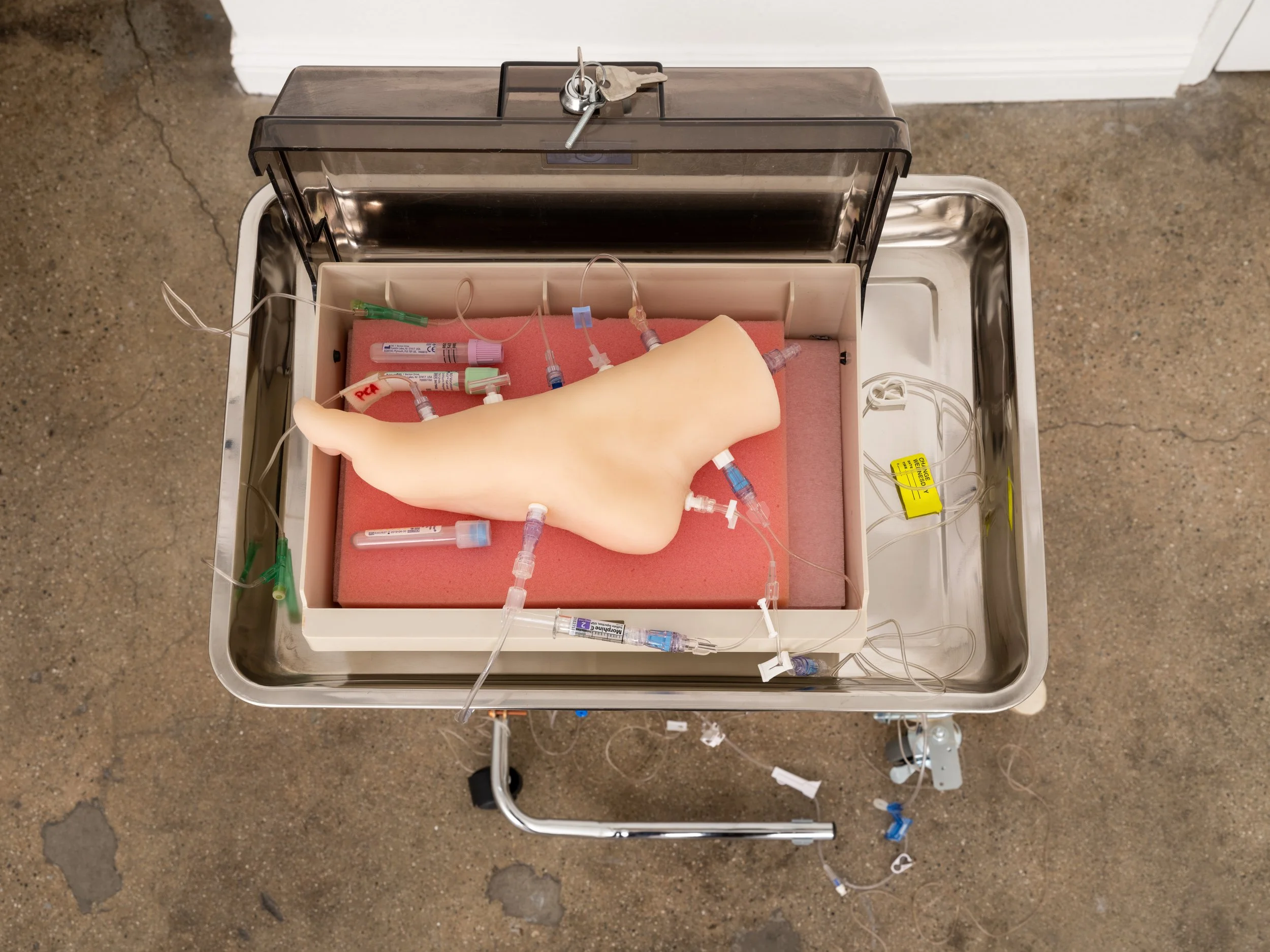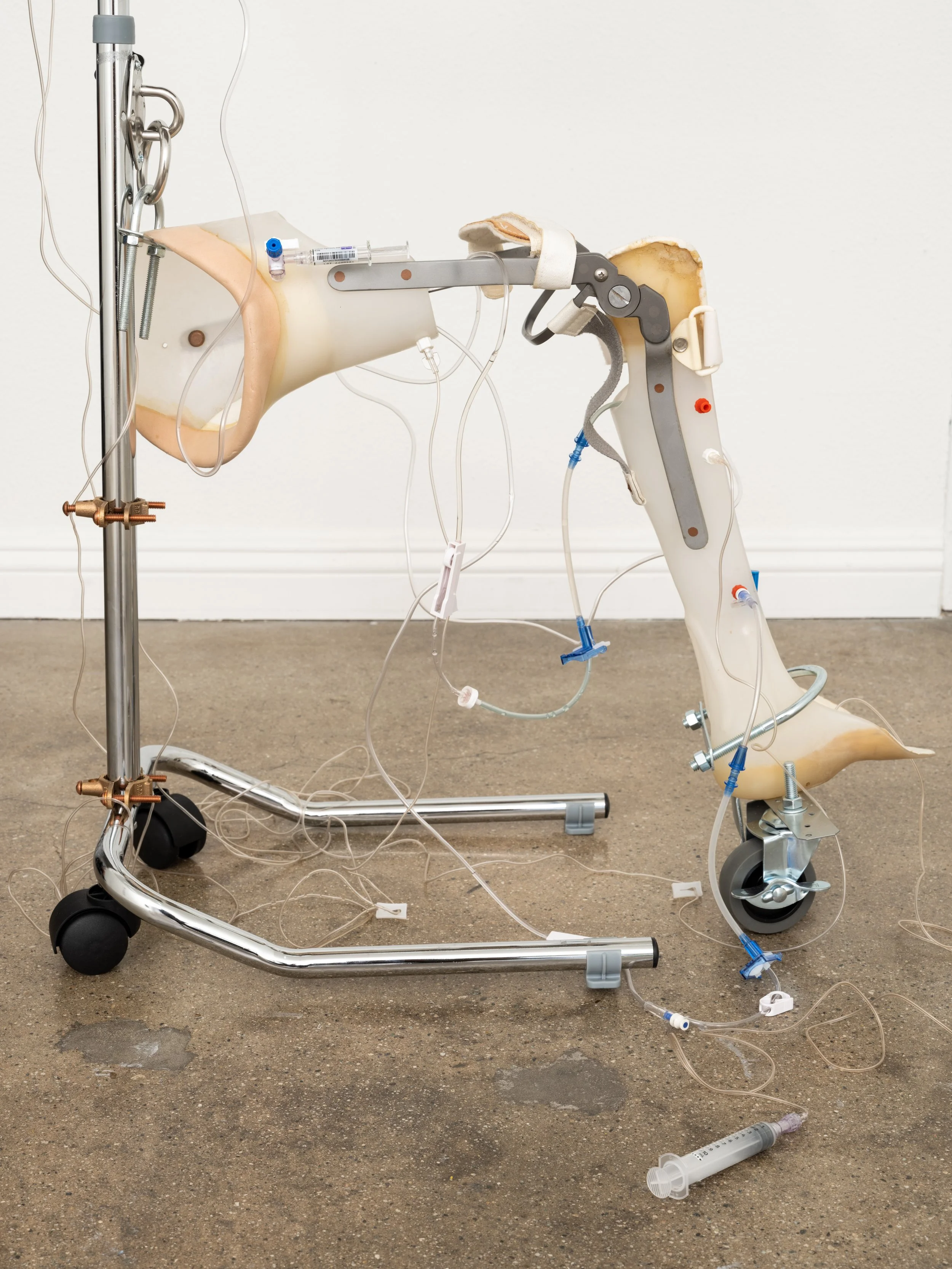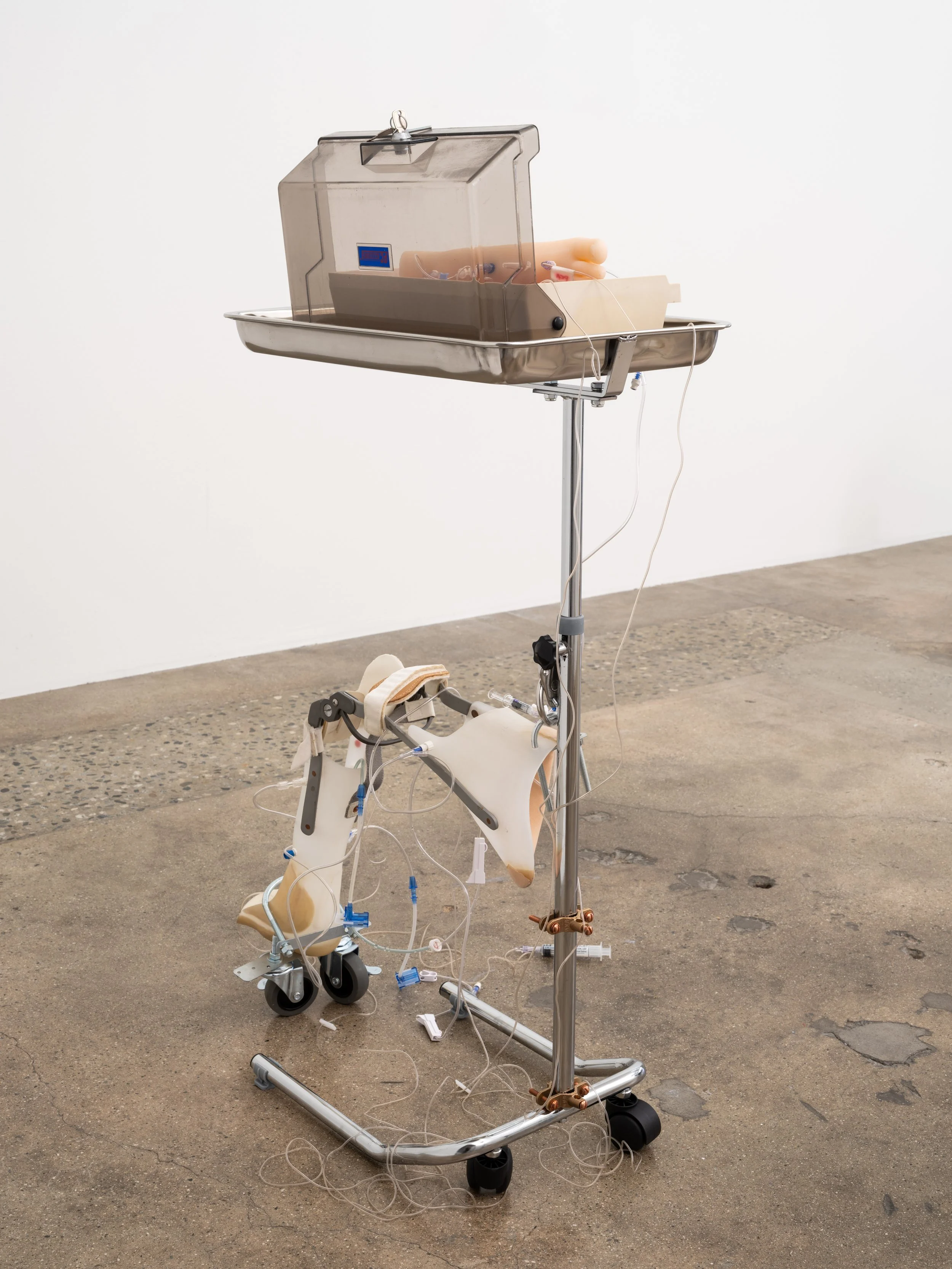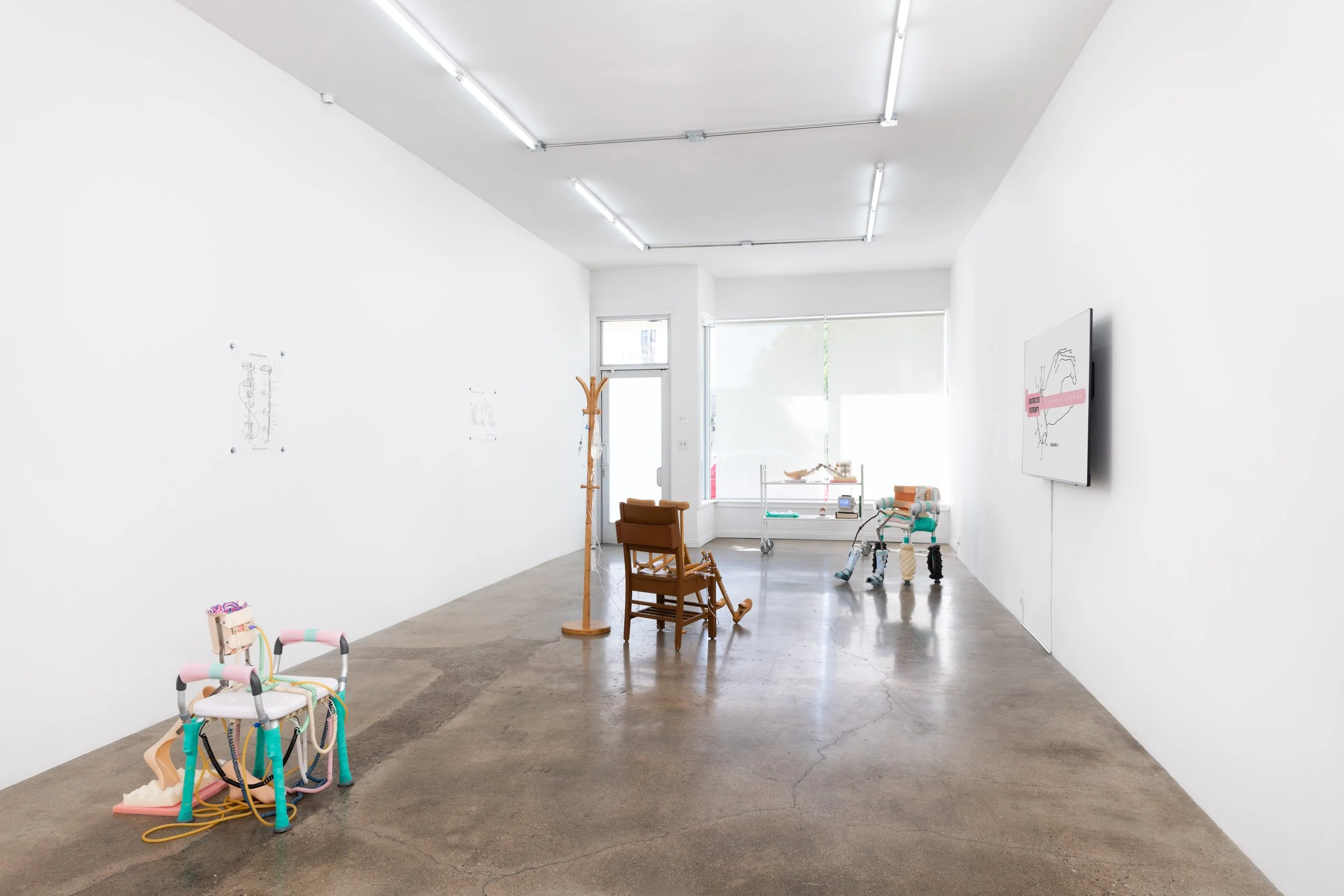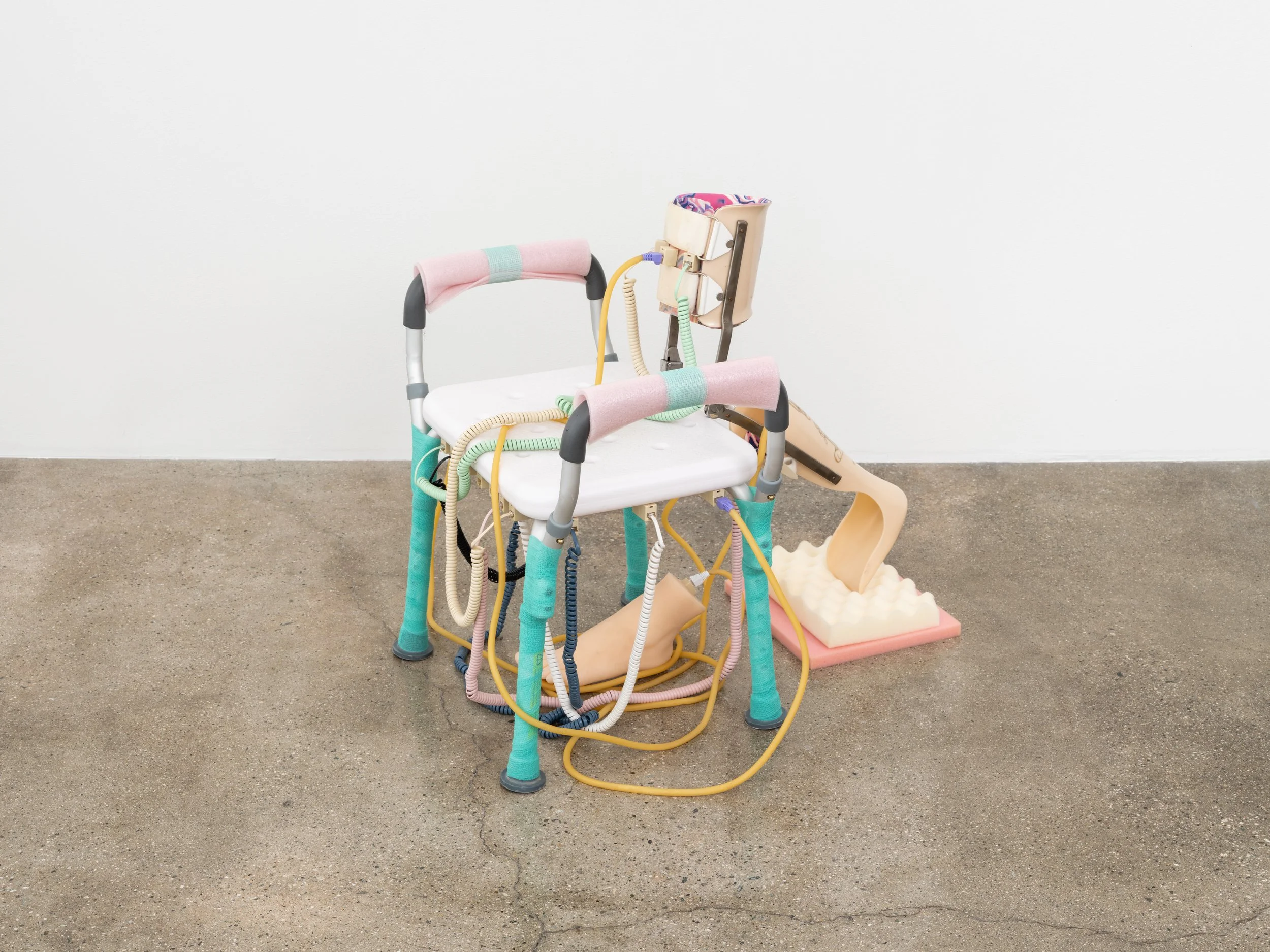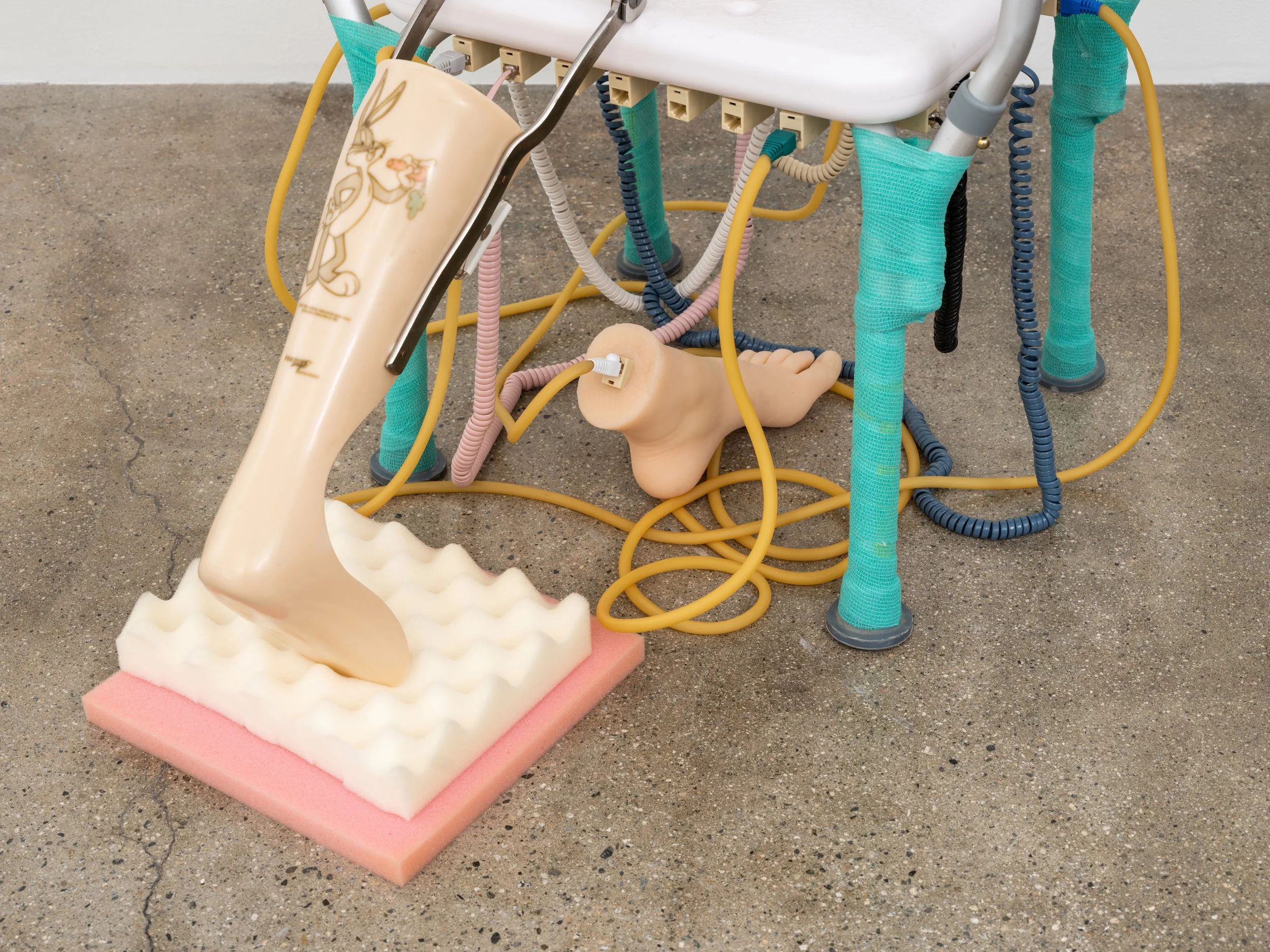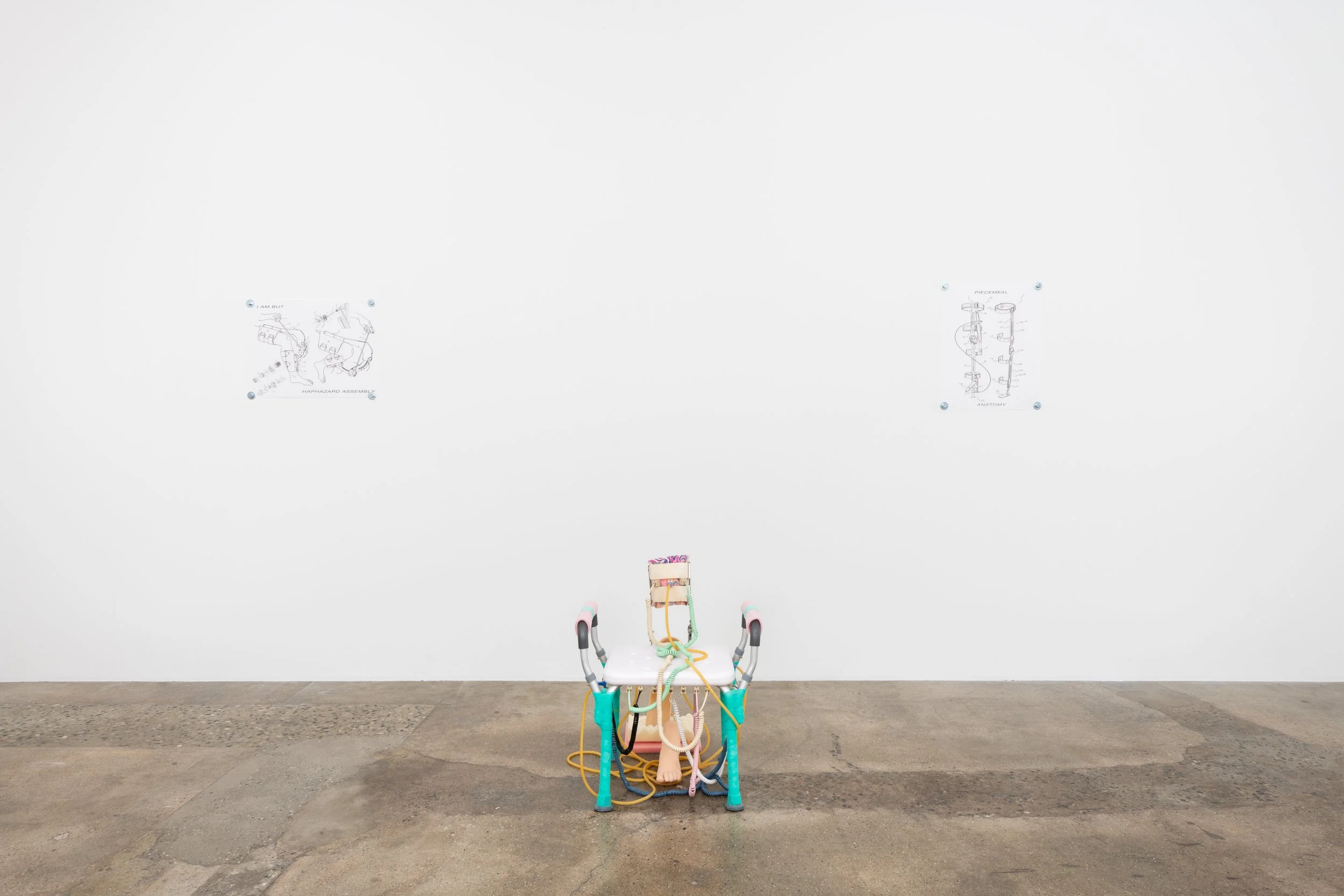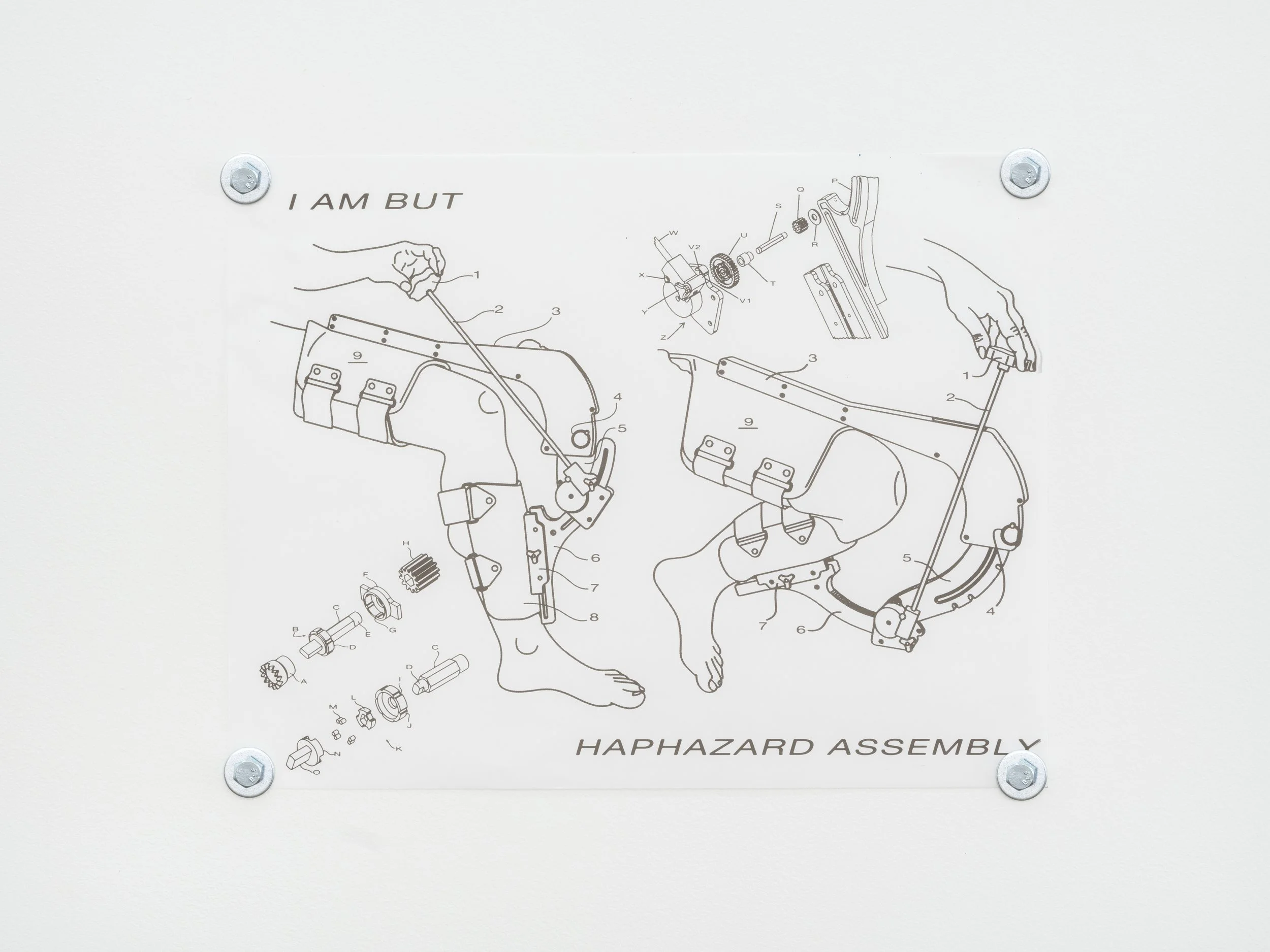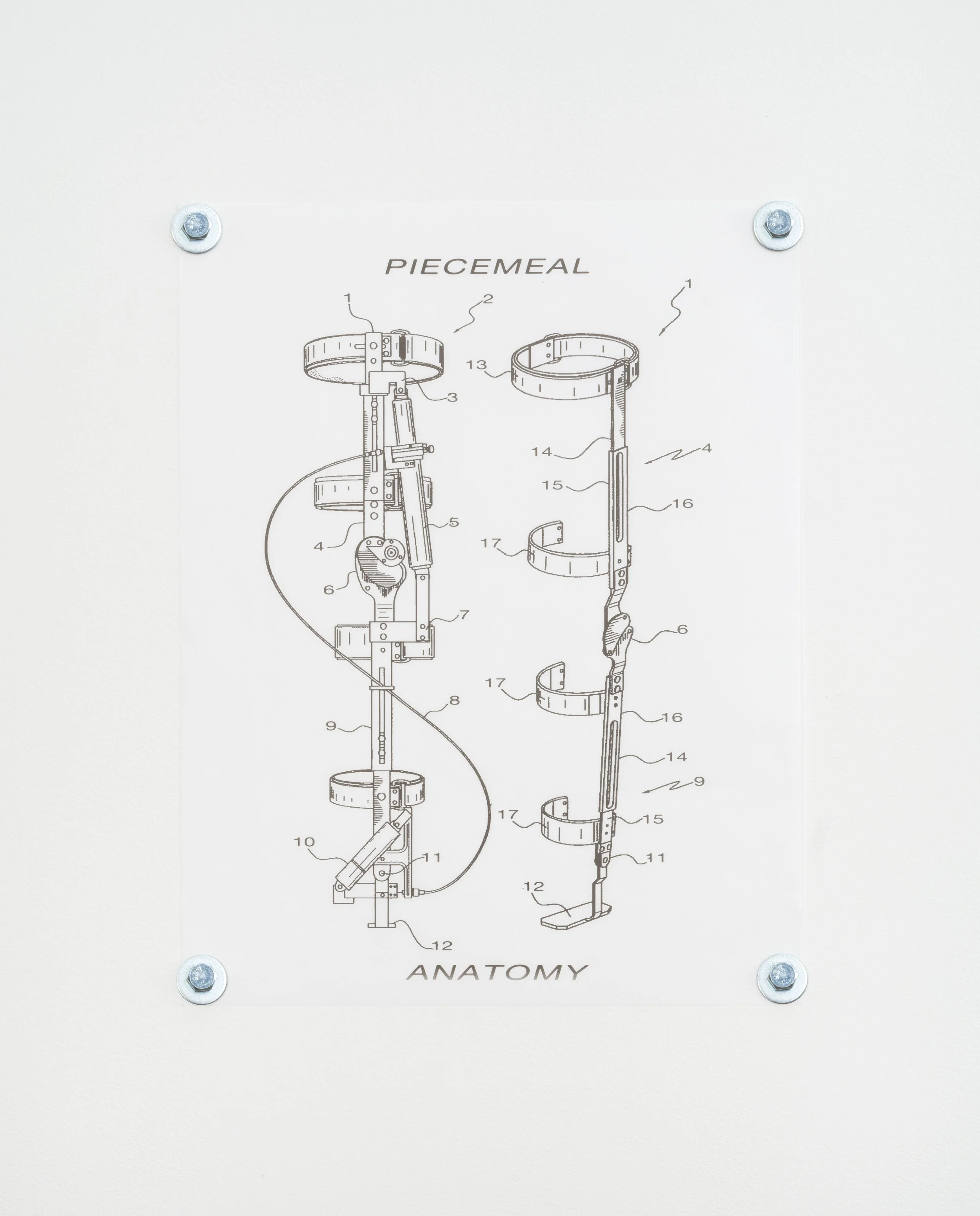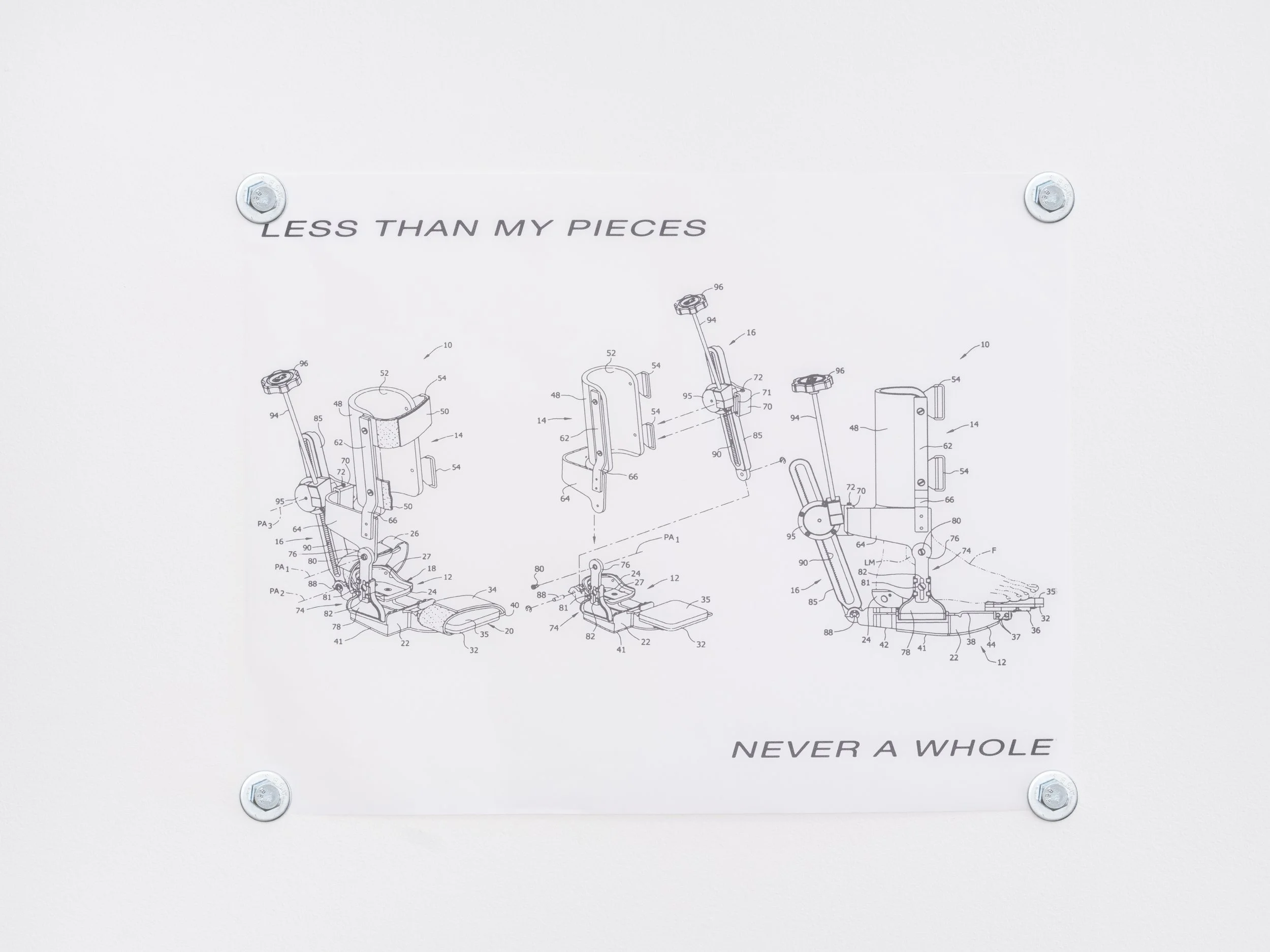Panteha Abareshi
This Is Not A Body
March 06 - April 10, 2022
PRESS: Los Angeles Time Image Magazine | LA Weekly | TZVETNIK
Throughout an interdisciplinary practice that includes sculpture, video, performance, and print, Los Angeles based artist Panteha Abareshi discusses the complexities of living as a chronically ill / disabled body in an ableist and normative society. Rooted in her experience of living with a genetic blood disorder that causes debilitating pain and bodily deterioration that both increase with age, Panteha’s work examines and dismantles our current definitions of “body” and “health,” definitions that rely on standards of able-bodiedness that are ultimately impossible to achieve. These imaginary standards have been integrated at every level of society, from architecture, to medicine, media, and beyond, marginalizing and doing violence to those who exist outside the norm. Laying bare her own experience of otherness, Abareshi confronts ableism through a nuanced critical examination of the Hospital as Institution, and the medical gaze as weapon. Appropriating and remixing the aggressively neutral and utilitarian aesthetics of the medical industry, Abareshi creates disembodied abstractions that engage complex power dynamics fraught with dimensions of race, gender, authority and the erotic.
The recent video Not A Body (2022) addresses the dehumanizing methodology of a medical industry in which a person is reduced to a data set. The work reflects the psychological and emotional frustration of a lifetime of being monitored, examined, and made to feel like a specimen. Propelled by a jarring soundtrack of industrial electronics, a rhythmic succession of still images appear on the screen: brightly colored hospital wristbands photographed on a stark white background. Each bracelet contains a phrase of text that creates a kind of dialectic call and response. Beginning with the prompt “This is not a body, but...”, the hand-written replies propose a litany of alternate definitions: “an empty promise”; “an irrigation system”; “a fetish.” This iterative strategy reveals a compelling paradox: individually the descriptions are limiting and reductive, but cumulatively they suggest multiplicity and limitlessness.
These contradictions are further explored in recent sculptural works incorporating prosthetics and mobility aids. Conflating the body with the devices intended to support it, these works possess a quality of enantiodromia in which an apparatus designed to enhance mobility becomes a restraint. Empty chairs and leg braces suggest an absent figure, acknowledging the erasure of sick and disabled bodies. On another level, this negative space forces the viewer to consider their own body and what they may take for granted about its condition.
Discomfort is a vital aspect of Abareshi’s practice, manifest most viscerally in performances and videos in which the artist pushes her body beyond its limits and capabilities. Complicated by elements of auto-objectification and self-abjectification, these works engage the viewer’s discomfort, highlighting the way in which society’s avoidance of “difficult” subjects functions to reinforce an ableist hegemony. However, instead of proposing a singular message about ableism, the artist unravels the liminal space between supposed binaries of mind and body, subject and object, organic and synthetic. Through the highly-personal lens of her own corporeal experience, Abareshi addresses larger, universal concerns of pain, fear, entropy, and mortality. At the heart of her practice is an unflinching exploration of identity, questioning what happens to the self when it is trapped inside a hostile environment, whether that environment is Society, the Institution, or the Body.
Panteha Abareshi was born in Montreal, Canada and currently lives and works in Los Angeles. She received a BFA from University of Southern California’s Roski School of Art and Design. Abareshi has previously performed and exhibited at MMK Frankfurt, the Institute of Contemporary Art, Los Angeles; Human Resources, Los Angeles; and the Los Angeles Municipal Art Gallery, among others, and will exhibit at Kunsthaus Zürich in summer 2022.



